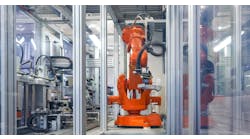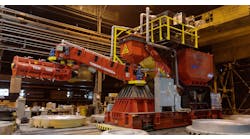When I was too young to know better I listened to guidance counselors, college admissions officers, career advisers, and others installed by academic institutions where I was enrolled to help me develop an understanding of the future, of the world, and of me in it. I was not alone; a lot of young people followed the “Liberal Arts” path to the future, and apparently some still do.
The critique then (and now) of the Liberal Arts course of learning is that it is a fine starting point for raising young minds to deeper matters, but it leads nowhere. It’s a routine without discipline. Having learned the Greek and Medieval philosophers’ instructions, the student should be encouraged to identify and pursue some summum bonum, rather than to continue pondering the enormity of the prospects and considering one clever insight and then another, and so on. Sometimes it happens, but not frequently enough for their own good. Or for the world’s good.
Some of my cohort sized up the problem and made a switch along the way, into the law or even engineering and medical sciences. In that way, through the educational standards required of them, they presumably adopted a more structured approach to learning — following an established syllabus, documenting their mastery of various subjects essential to particular professions.
Others of my type proceeded into business or academia, learning along the way what information is essential to succeed in the course they were chartering. Many of these too found it advantageous to accredit themselves with some degree — MBAs and PhDs are proof of an individual’s intelligence in some more narrowly defined areas of study, as well as discipline beyond the workplace to gain such accreditation and recognition.
Still, we need more discipline. The world today is full of people with good educations and admirable accomplishments, both personal and professional, and yet it frequently seems to me that the liberal-arts graduates have come out ahead of everyone. What else could explain an advanced society of intelligent beings so fixated on the alluring possibility that some idea or principle (or dire conspiracy) holds the answer to all that confounds us.
For context, consider the late-summer 2019 phenomena of the “inverted yield curve”, a financial development that signals standard investment strategies (U.S. Treasury bonds) will pay more in the short-term (two years) than in the longer term (10 years.) It is implied that long-term growth prospects are declining, and the further implication is that there is some clear explanation for why this is so.
In the phenomena I describe here the ready explanation for the anxiety induced by the specter of long-term decline is the current, real frustration over U.S. tariffs on imported manufactured goods. Tariffs — which this column opposes for ineffectiveness at addressing global trade inequities — have been the direct cause of lost income and opportunity to many businesses. They are likely to continue to affect businesses and supply chains, and consumers in the present. But equating one financial development to another, and filling in the missing logic with suppositions is the sort of exercise that earns an undergraduate C, not an M.B.A.
The “world” wants answers to unresolved questions because individuals want answers: the individual pursuits by billions of individuals leads to some answers, but also to many, many opportunities for insight, for innovation and discovery, for success and failure. We busy ourselves with the questions, not the responses.
Presently, the world seems intent on deriving broader and faster — simpler —explanations to all manner of complex problems through technology, through data analysis, through automation and simulation. But explanations are not answers. They are not solutions.
If your pursuit of better, deeper understanding demands more than wealth or fame, or comfort, or power, you will not find it in this world. Other than those variables, everyone has the same future. But disciplining our thoughts, our habits, and ourselves may guide us to recognize that which is a problem — and that which is our own failure to learn.









